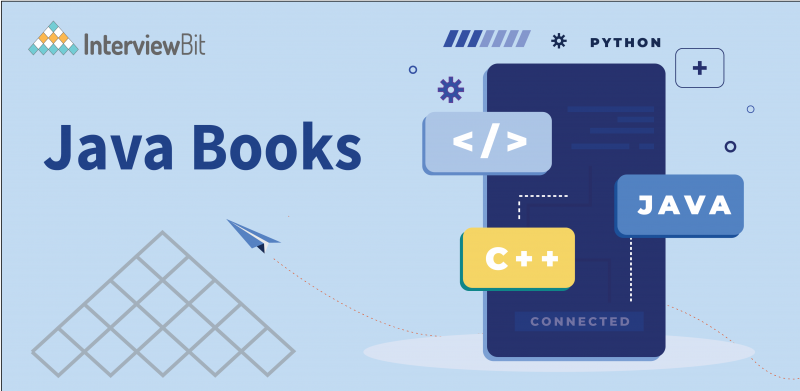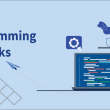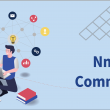For mastering the Java programming language, most experienced Java programmers advocate reading books. The books include in-depth and accurate information. This is significant since Java is one of the most widely used programming languages in the world, as it can be used to create customized programmes for a wide range of applications.
In this blog, you will come across the top 15 best books that are in use to learn the Java programming language. There are three categories in which these books are divided:
- Beginner: for the absolute beginners
- Intermediate: for those who have some knowledge of the Java basics.
- Advanced: for those who want to get in-depth knowledge of Java and apply their learnings to advance their career.
- Best Java Books for Begineers
- 1. Head First Java
- 2. Java: A Beginner’s Guide
- 3. Core Java Volume I – Fundamentals
- 4. Beginning Programming with Java For Dummies
- 5. Java: Programming Basics for Absolute Beginners
- Best Java Books for Intermediate
- 6. Effective Java
- 7. Java: The Complete Reference
- 8. Thinking in Java
- 9. Java 8 in Action
- 10. Cracking the Coding Interview
- Best Java Books for Advanced
- 11. Java in a Nutshell: A Desktop Quick Reference
- 12. OCA Java SE 8
- 13. Java Puzzler: Traps, Pitfalls, and Corner Cases
- 14. The Java Language Specification
- 15. Head First Design Patterns
- Conclusion
- FAQs
- Additional Resources
Best Java Books for Begineers
1. Head First Java
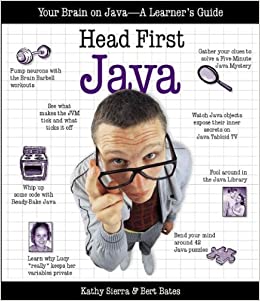
Author Name: Kathy Sierra & Bert Bates
Latest edition: Second edition
Ratings: 4.2 / 5 (Goodreads)
Confused about your next job?
You’ll love this beginner’s book if you simply can not understand a clear explanation without appropriate schemes, diagrams, or graphics. Head First Java delves into practically all OOPS ideas and explains them in a fascinating way. It offers a user-friendly involvement that will keep you captivated from the first page to the last. You’ll have no trouble grasping the logic of the language and its main concepts that will help you begin with your coding hands-on. Exercises and riddles are included at the end of each chapter to aid in memorization.
2. Java: A Beginner’s Guide
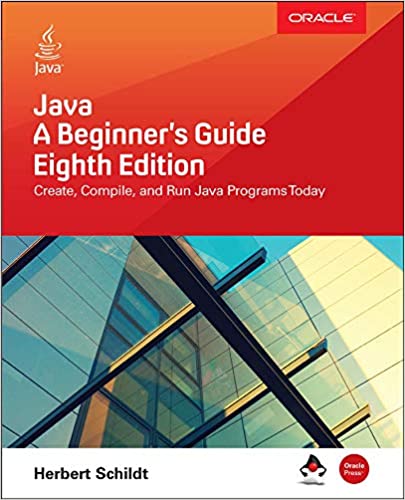
Author Name: Herbert Schildt
Latest Edition: Eighth edition
Ratings: 3.9 / 5 (Goodreads)
It is one of the most comprehensive Java books available. Anyone with a rudimentary understanding of programming can benefit from Java: A Beginner’s Guide. The Java book covers all of Core Java’s ideas. It will help you better understand the roots of Java and how it relates to other programming languages. The author has also done an amazing job of keeping the book up to date; for example, the 7th Edition currently includes Java 9. A self-test portion at the end of each chapter is a fantastic feature of this book.
3. Core Java Volume I – Fundamentals
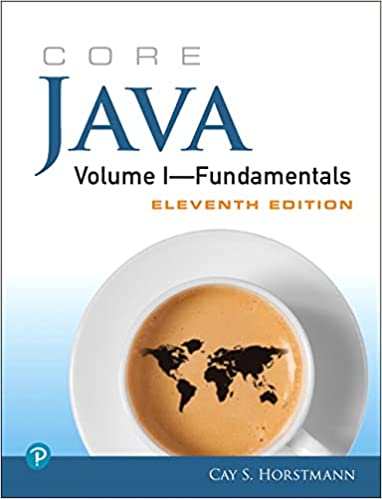
Author Name: Cay S. Horstmann
Latest Edition: Eleventh edition
Ratings: 4.2 / 5 (Goodreads)
Core Java Volume-I is the book for you if you wish to learn the fundamentals of Java programming. For more quick and exploratory creation, this book employed a novel Read-Eval-Print Loop (REPL). Each chapter covers a specific topic, beginning with an introduction to the language and the Java programming environment and progressing to data structures, objects, and classes, among other topics. Reflection, Proxies, ClassLoader, and other subjects are covered in detail in this fundamentals book. Unlike many beginner’s books, Core Java covers collections and generics explicitly, which is useful in real-world programming.
4. Beginning Programming with Java For Dummies
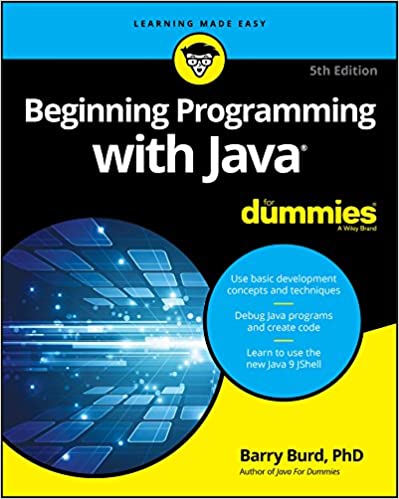
Author Name: Barry Burd
Latest Edition: Seventh edition
Ratings: 3.8 / 5 (Goodreads)
This book will show you how to develop a programme in Java, how to connect various elements together, and how to deal with common programming issues in Java, among other things. They clarify the major terms simply and clearly due to the basic language. After you finish the reading, you will understand the most important things you need to know to get started with Java coding, such as how to install Java, compile code, and complete various practical exercises. You’ll also learn how to set up the Eclipse IDE step by step, so you can start coding right away. This book includes numerous questions and exercises to help you strengthen your knowledge of Java.
5. Java: Programming Basics for Absolute Beginners
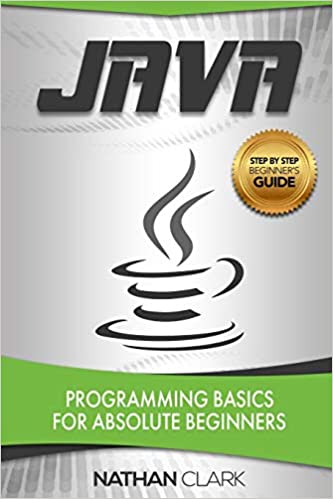
Author Name: Nathan Clark
Ratings: 5/5 (Goodreads)
This is another book for readers with no prior coding expertise that will walk you through the basics step-by-step. You’ll discover how to pick an IDE and develop your first programme. An easy-to-understand introduction to Java programming and its primary features. You’ll learn the fundamentals of Java while working through 57 real-world examples. Each topic, such as Data Types, Variables, Constants, Operators, Type Conversion, Loops, Decision Making, and so on, is illustrated with various examples.
Best Java Books for Intermediate
6. Effective Java
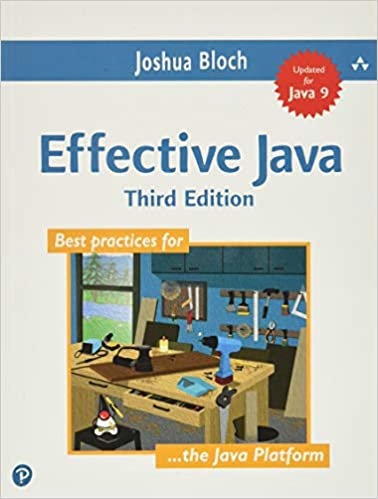
Author Name: Joshua Bloch
Latest Edition: Third edition
Ratings: 4.5 / 5 (Goodreads)
If you have a basic understanding of Java programming, you can use this book to study more in-depth as this book is not for complete beginners. A novel design pattern, annotations, autoboxing, and other subjects are covered in the book. It will assist you in gaining a thorough understanding of the seventy-eight programmer’s rules of thumb, which are practical answers to a variety of programming problems. Each chapter has “items” with a wealth of practical guidance and a thorough examination of the most recent Java features. It will show you how to write code correctly and efficiently.
7. Java: The Complete Reference
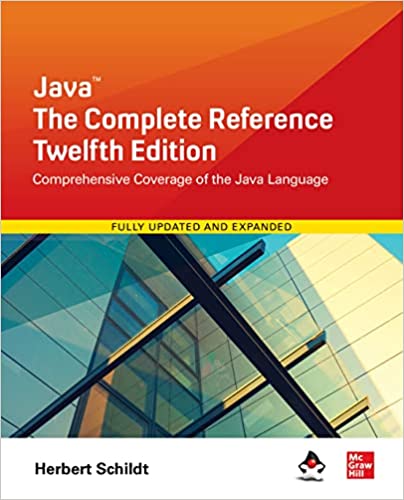
Author Name: Herbert Schildt
Latest Edition: Eleventh edition
Ratings: 4.2 / 5 (Goodreads)
It is the most frequently recommended book by many Java programmers, as well as by colleges for their students. It contains excellent information on Java language syntaxes, the Java 8 API, JavaBeans, servlets, applets, swing, and other topics. It is widely available on the market, with a PDF version available for download. It’s a well-organized, full-featured source on Java programming that includes real-world examples. An introduction to JShell, Java’s interactive programming tool, is also included. The book is packed full of talks and practical examples that will help you learn Java faster.
8. Thinking in Java
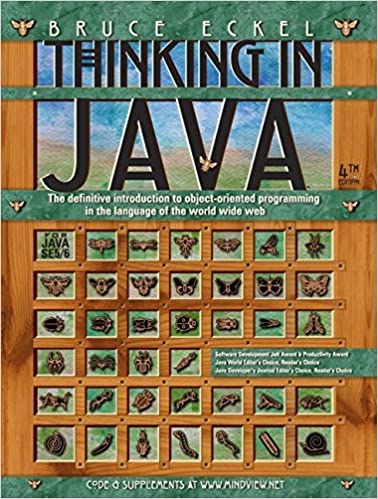
Author Name: Bruce Eckel
Latest Edition: Fourth edition
Ratings: 4.2 / 5 (Goodreads)
You will get compelled to think in Java as a result of this book. The book starts with the fundamentals of OOPs and progresses to more complex topics such as concurrency management, XML, and design patterns, among others. It includes as many easy and brief examples as possible. Each part will keep you focused on the task at hand. It will assist you in covering new ground. It’s one of those books that you’ll refer to again and again, even if you’ve been studying and coding for years. It motivates you to develop and teaches you how to think like a Java programmer.
9. Java 8 in Action
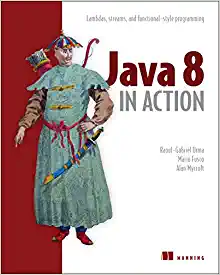
Author Name: Raoul-Gabriel Urma, Mario Fusco, and Alan Mycroft
Ratings: 4.3 / 5 (Goodreads)
It will be easier for you to comprehend the subject if you have some prior knowledge of Java. But it’s the book’s many-sidedness of practise that makes it so appealing. There are both “correct” and “wrong” code samples in the examples. Java 8 in Action is a written guide to all of Java 8’s new features. Lambdas, streams, and functional programming are all covered in this book. You may now write more concise code in less time thanks to Java 8’s functional capabilities, and you’ll instantly benefit from multicore systems. The new Streams API is then covered, along with how to leverage it to make collection-based applications much easier to comprehend and maintain.
10. Cracking the Coding Interview
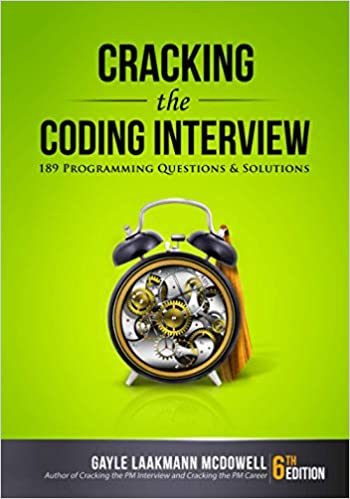
Author Name: Gayle Laakmann McDowell
Latest Edition: Sixth edition
Ratings: 4.4 / 5 (Goodreads)
Cracking the Coding Interview is a guide on navigating the interview process at software behemoths. It teaches you everything you need to know and allows you to give your finest performance. It explains how to find hints and hidden subtleties in a question, how to break down a problem into digestible bits, how to unstick yourself when you get stuck, how to learn key computer science principles, and how to practice on 189 interview questions and solutions. Although the book is written in Java, the code is quite understandable, so it can be treated as pseudocode.
Best Java Books for Advanced
11. Java in a Nutshell: A Desktop Quick Reference
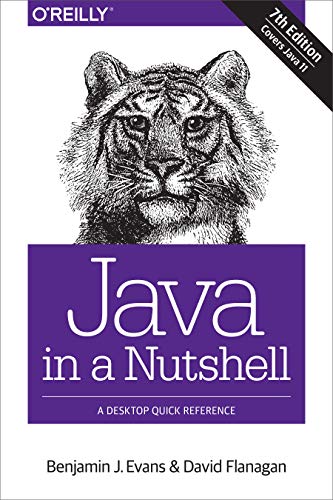
Author Name: Ben Evans and David Flanagan
Latest Edition: Seventh edition
Ratings: 3.8 / 5 (Goodreads)
This new edition of Java in a Nutshell not only assists experienced Java programmers in getting the most out of Java 9 through 11, but it also serves as a learning path for novice developers. This newly rewritten book, which contains new content on Java Concurrency Utilities, is jam-packed with examples that show how to take full advantage of modern Java APIs and development best practices. Generics, enumerations, annotations, and lambda expressions can all be explored. Understand the fundamentals of object-oriented design. Examine the relationship between concurrency and memory. Handle popular data formats and work with Java collections.
12. OCA Java SE 8
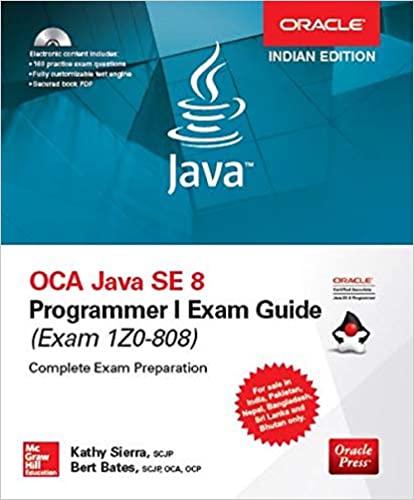
Author Name: Kathy Sierra, Bert Bates, Elisabeth Robson
Ratings: 4.3 / 5 (Goodreads)
The OCA Java SE 8 Programmer I Exam Guide (Exam 1Z0-808) comprises two comprehensive, accurate practise tests written by developers of the original Sun Certified Java Programmer exam. In total, there are over 250 practise questions in the book and an additional 160 sample exam questions in the digital content that are similar in topic, tone, and format to those on the actual test. You must be familiar with Java and have practical experience with it before reading this book. If you’re brand new to the Java programming language, I recommend starting with an introductory book and then moving on to this one.
13. Java Puzzler: Traps, Pitfalls, and Corner Cases
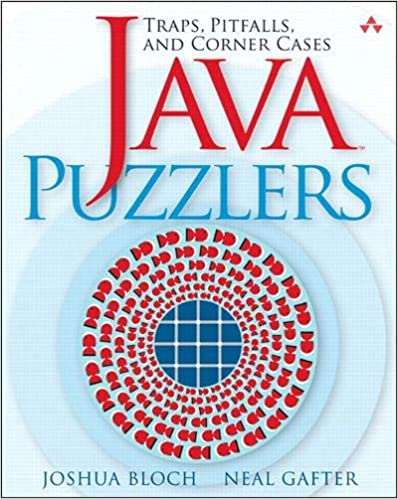
Author Name: Joshua Bloch, Neal Gafter
Ratings: 4.2 / 5 (Goodreads)
In the form of puzzles, this book explains the inner workings of the Java programming language. It has over 500 problems that are all based on Java programming. Because this is an advanced-level book, you must be conversant with the Java programming language. The majority of the riddles are in the form of a short program with unexpected behavior. The puzzles are loosely organised by the features they employ, with detailed answers following each puzzle. The solutions go beyond a basic explanation of the program’s behaviour, showing you how to permanently avoid the underlying traps and dangers.
14. The Java Language Specification
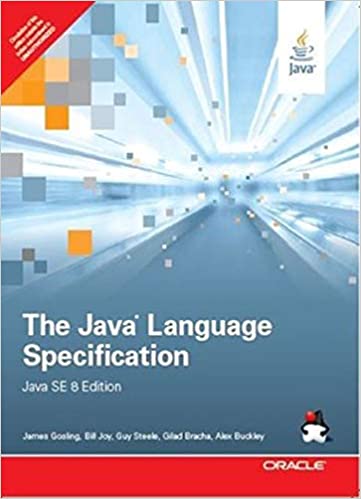
Author Name: James J. Gosling, Bill Joy, Jr. Steele, Guy L., Gilad Bracha, Alex Buckley, Guy L. Steele Jr.
Latest Edition: Eleventh edition
Ratings: 4 / 5 (Goodreads)
It accurately and thoroughly explains both fundamental and advanced ideas. It goes over all of the new features included in Java SE 8. Lambda expressions, default methods, type annotations, and repeated annotations are among the new features in Java SE 8. The book also offers numerous explanatory comments that clearly separate the formal rules of the language from compiler behavior. Before using this book, you’ll need a fundamental understanding of java or another object-oriented language, but once you do, this book will become your bible. There are no extra words in this book to fill up the pages.
15. Head First Design Patterns
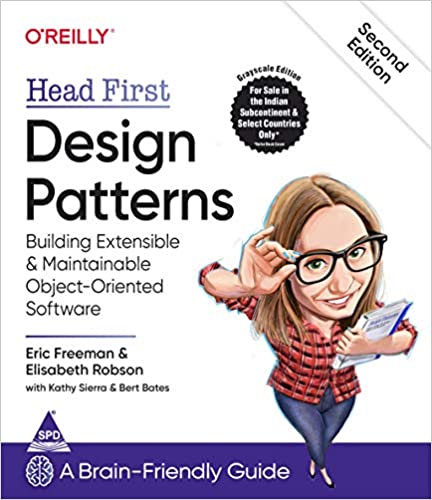
Author Name: Eric Freeman & Elisabeth Robson with Kathy Sierra & Bert Bates
Latest Edition: Second edition
Ratings: 4.3 / 5 (Goodreads)
For building flawless Java programs, a solid understanding of OOP and design patterns is required. One of the most popular books for developing that specific understanding of the Java programming language is Head First Design Patterns. With Design Patterns, you can make use of other people’s best practices and experiences so you can focus on something more difficult. Something a little more enjoyable. This book explains the patterns that matter, when and why to use them, how to apply them to your ideas, and the object-oriented design principles that underpin them.
Conclusion
So, you’ve come across some excellent books that are essential for any Java developer or aspiring Java developer. Finally, best of luck with your Java programming endeavours. It won’t be easy, but reading these books will provide you with some valuable experience.
FAQs
Which book is best for learning Java?
The first recommendation is still Head First Java because it is the best book to learn Java. Any beginner who aspires to learn Java can opt for this book.
Is Java difficult for beginners?
Java is quite simple to learn when compared to other programming languages. It isn’t easy, but if you put forth the effort, you can learn it quickly.
Should I learn Java or JavaScript?
Both languages are heroes in their respective fields. Java is a general-purpose programming language that can construct anything, whereas JS is still mostly a web technology.


